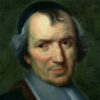ANNA: Well, people change, and forget to tell each other. Too bad — causes so many mistakes.
Lillian Hellman (1905-1984) American playwright, screenwriter
Toys in the Attic, Act 3 (1959)
(Source)
Quotations about:
miscommunication
Note not all quotations have been tagged, so Search may find additional quotes on this topic.
It’s through universal Misunderstanding that everybody comes to agreement.
If, by some misfortune, everybody understood each other, one could never come to agree.
[C’est par le malentendu universel que tout le monde s’accorde.
Car si, par malheur, on se comprenait, on ne pourrait jamais s’accorder.]Charles Baudelaire (1821-1867) French poet, essayist, art critic
Journaux Intimes [Intimate Journals], “Mon cœur mis à nu [My Heart Laid Bare],” § 99 (1864–1867; pub. 1887) [tr. Sieburth (2022)]
(Source)
(Source (French)). Alternate translations:
It is by universal misunderstanding that all agree.
For if, by ill luck, people understood each other, they would never agree.
[tr. Isherwood (1930)]
It is by universal misunderstanding that we agree with each other.
If, by some misfortune, we understood each other, we would never agree.
[Source]
No one would talk much in society, if he only knew how often he misunderstands others.
[Niemand würde viel in Gesellschaften sprechen, wenn er sich bewußt wäre, wie oft er die andern mißversteht.]
Johann Wolfgang von Goethe (1749-1832) German poet, statesman, scientist
Elective Affinities [Die Wahlverwandtschaften], Part 2, ch. 4, “From Ottilie’s Journal [Aus Ottiliens Tagebuche]” (1809) [Niles ed. (1872)]
(Source)
(Source (German)). Alternate translation:
We would not say very much in company if we realized how often we misunderstand what others say.
[tr. Hollingdale (1971)]
What we’ve got here is a failure to communicate.
Donn Pearce (1928-2017) American novelist, screenwriter
Cool Hand Luke (1967) [with Frank Pierson]
(Source)
The line actually occurs twice in the movie. It's initially voiced by the Captain, the warden of the prison where Luke is sent to. While the line shows up in the final revision of the script (sc. 313) as above, Strother Martin actually speaks it in the movie without the indefinite article "a" before "failure":
What we’ve got here is failure to communicate.
The second time the line shows up -- spoken by Luke, at the end of the movie, mocking the Captain -- it is both scripted (sc. 432) and filmed with the article intact.
Speaking of love, one problem that recurs more and more frequently these days, in books and plays and movies, is the inability of people to communicate with the people they love: husbands and wives who can’t communicate, children who can’t communicate with their parents, and so on. And the characters in these books and plays and so on, and in real life, I might add, spend hours bemoaning the fact that they can’t communicate. I feel that if a person can’t communicate, the very least he can do is to shut up.
Tom Lehrer (b. 1928) American mathematician, satirist, songwriter
“Alma,” Afterword, That Was the Year That Was (1965)
(Source)
Although we have already spoken in the First Part touching the utility of the definition of terms, it is nevertheless so important, that we cannot have it too much impressed on our minds, since we may by it clear up a number of disputes, which have as their subject often only the ambiguity of terms, which one takes in one sense, and another in another. So that some of the greatest controversies would cease in a moment, if one or the other of the disputants took care to make out precisely, and in a few words, what he understands by the terms which are the subject of dispute.
Antoine Arnauld (1612-1694) French theologian, philosopher, mathematician
Logic, or the Art of Thinking [La Logique ou l’art de penser; The Port-Royal Logic], Part 4, ch. 4 (1662) [with Pierre Nicole] [tr. Baynes (1850)]
(Source)
Alternate translation:
Although we have already spoken in Part I about the usefulness of defining one's terms, this is, however, so important that we cannot bear it too much in mind, since this is how countless disputes are cleared up whose cause is often merely an ambiguity in terms that one person takes one way and another person another way. Accordingly, some very serious arguments would cease in an instant if either of the disputants took the care to indicate clearly, in a few words, the meanings of the terms that are the subject of dispute.
[tr. Buroker (1996)]
The secret language of statistics, so appealing in a fact-minded culture, is employed to sensationalize, inflate, confuse, and oversimplify. Statistical methods and statistical terms are necessary in reporting the mass data of social and economic trends, business conditions, “opinion” polls, the census. But without writers who use the words with honesty and understanding and readers who know what they mean, the result can only be semantic nonsense.
The problem with communication is the illusion that it has occurred.
George Bernard Shaw (1856-1950) British playwright and critic
(Spurious)
Frequently attributed, but not found in Shaw's writings. Most likely originated by William Hollingsworth Whyte, "Is Anybody Listening?" Fortune (Sep 1950). More discussion: The Biggest Problem in Communication Is the Illusion That It Has Taken Place – Quote Investigator.








